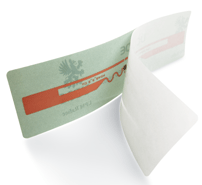Watch Out, Dewey Decimals. Here Comes RFID
29 October, 2007
category: RFID
Can RFID banish tried-and-true library inventory methods?
In a press release entitled, ‘RFID Enabled Active Shelf May Signal the Death of the Dewey Decimal System’, Baltimore company Barcoding, Inc., suggests just that.
Barcoding Inc. announced that their award-winning RFID Active Shelf Inventory System utilizes RFID technology to constantly monitor the location of books and other media on library shelves.
Barcoding’s Active Shelf can use either HF or UHF RFID tags to track the location of each book on the shelf, and items can be classified by genre, author, subject, or other characteristics much like you see to today’s bookstores.
RFID Enabled Active Shelf May Signal the Death of the Dewey Decimal System
Baltimore, MD (PRWEB) October 27, 2007 – Barcoding Inc. announced that their RFID Active Shelf Inventory System may soon spell the end for the Dewey Decimal System in libraries across the country. The shelf system, recently awarded the MD Daily Record Innovator of the Year Award, utilizes RFID technology to constantly monitor the location of books and other media on library shelves.
The 131 year old Dewey Decimal system, invented in 1876 by Melvil Dewey, relies on labeling books and classifying them primarily by subject relationships, time, or type of materials, producing numbers at least three digits long, but indeterminate in length. The resulting number determines the order and location that books are placed on shelves. Barcoding Inc. will be demonstrating their shelf system at this week’s Palinet07 Conference being held at the Baltimore Tremont Hotel + Convention Center.
Barcoding’s Active Shelf can use either HF or UHF RFID tags to track the location of each book on the shelf, and items can be classified by genre, author, subject, or other characteristics much like you see to today’s bookstores. The software that runs the Active shelf system can integrate with a library’s ILS (Integrated Library System), allowing customers to search for books and identify which shelf in the library they are on, even if they are misplaced in a different section.
Many libraries are adopting this technology to help track items in areas with large circulation, including DVDs and CDs, as well as reference areas where items are not checked out, but used within the library.
“Librarians find this system particularly useful to monitor reference books where the only way they know which items are being frequently used, is by seeing which books are constantly left on tables,” said Bill Poulsen, Director of RFID Integration for Barcoding Inc. “With our system, we can tell how often books are taken from shelves, and how long they are used. Now librarians have the added knowledge of how often materials are used, and less frequently used materials can be kept in storage rooms on a reserve basis. This clears up valuable shelf space enabling libraries to purchase more reference books that are pulled from the shelf most often.”
The main RFID reader can reside on one “master” shelf, while the other shelves act as antennas, requiring nothing more than a network cable to send information back and forth to the host system. All of the shelves in the library can be set-up with three to four inventory zones, so locating a particular book is quite easy.
“Many libraries are already tagging books for check-in and check-out functionality, we are taking the technology another step by letting them see where the books are in their library,” added Poulsen. “While most libraries are using HF tags, our shelf is designed to work with either HF or UHF tags. The benefit of using UHF tags is that they are nearly one-third the cost of the HF tag; depending on a libraries circulation, and using UHF tags can save enough money in tag cost alone to cover most of the infrastructure costs. Implementing UHF tags and using our Active Shelf system nearly pays for itself before a single book is put on the shelf.”
While Barcoding’s Active Shelf system doesn’t spell immediate doom for the Dewey Decimal System, it does give libraries an alternative to using the 131 year old system, which enhances the customers experience and helps them find a book without having to search through a card catalog.
About Barcoding Inc.
Barcoding Inc. helps business and government organizations deploy supply chain technology, including bar code scanners, wireless terminals, mobile computers, RFID systems, and related software. Clients include manufacturing, distribution, healthcare and warehousing companies, and many state, local and federal agencies. Based in Baltimore, Maryland, Barcoding has 16 offices throughout the United States. European sales and customer service are handled through an office in the Netherlands.


